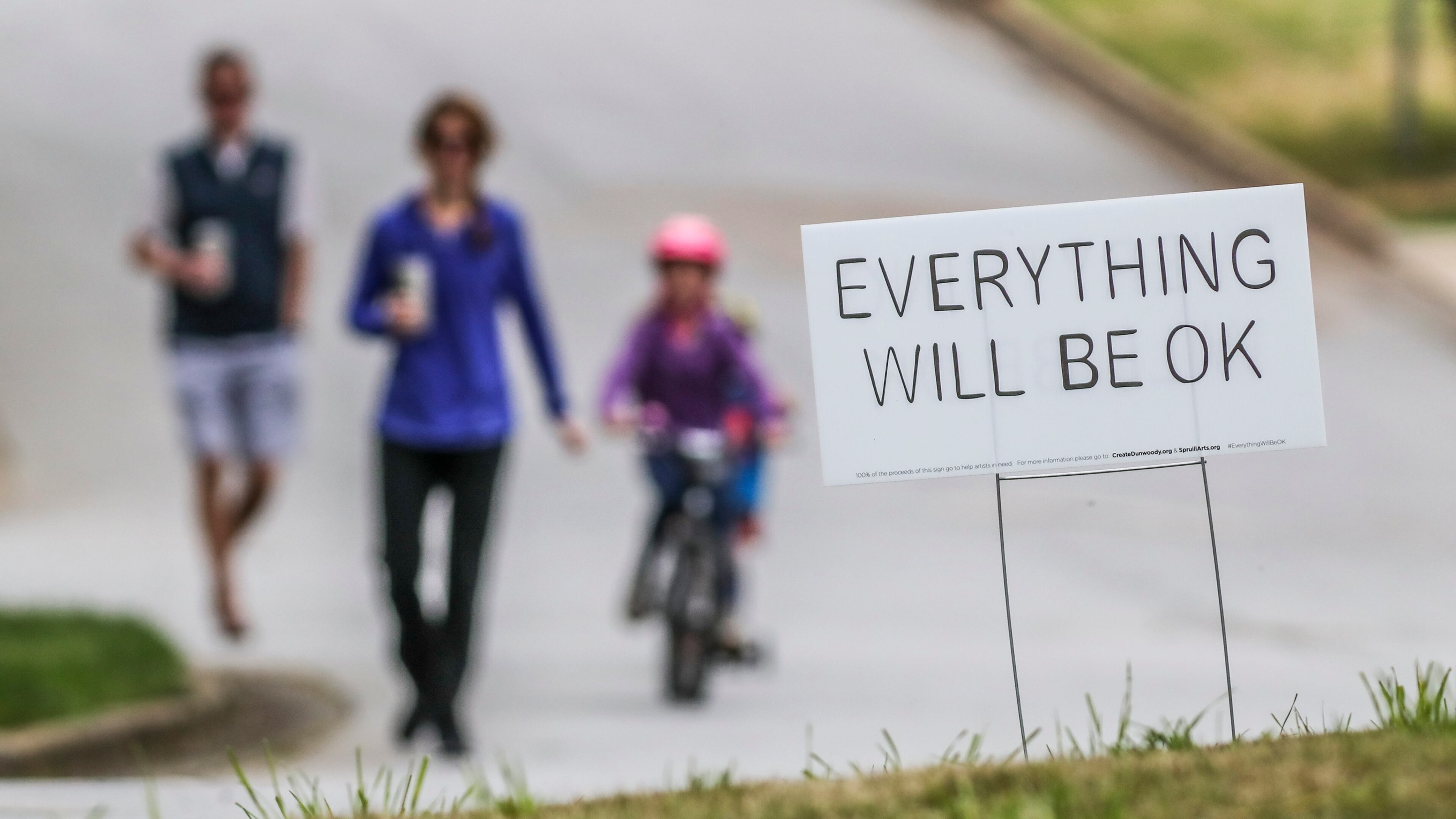Lifting one another up during difficult times

Editor's note: Clearly, the coronavirus is testing everyone's patience and resolve. Yet, amid the uncertainty, a resilient spirit thrives.
To provide a bit of a diversion from the news around us, we’ve asked our community contributors to share their personal stories of optimism during these troubling times.
Their stories will appear weekly. We hope you find them inspirational. We hope they provide you with some perspective. And we hope they remind you, as captured in some of their personal stories, that we are all in this together.
‘Adversity brings out the best in us’
You may ask, what? What is a “soul response?”
Before I try to explain, let me touch upon some of the devastating ways in which this monstrous virus has shamelessly claimed more than 375,000 lives – including the feeble and the elderly and the underprivileged and the downtrodden masses around the world.
As a killer, the coronavirus is an equalizer with no discrimination whatsoever for color, creed, gender, culture, status, occupation or nationality. Yet, statistics show that the population hit hardest comprises the lowest socio-economic strata of humanity.
Death is not the only face of the coronavirus. COVID-19 kills in a myriad of ways.
It sucks away jobs, cripples our economy, crashes the stock market and forces people to shelter inside their homes.
Most disheartening, it deprives us of our ordinary, day-to-day life, whether it’s visiting our favorite restaurant, traveling or throwing a birthday bash for our grandchild.
Think of it, what’s the joy of partying without a roomful of people mingling and hugging, talking loudly, singing or dancing crazy, laughing hysterically and just enjoying each other’s company?
Is there a way out of this physical, psychological, emotional and economic crisis?
The answer is an affirmative YES!
You see, coronavirus cannot kill the human spirit, which can overcome any form of crisis – natural or unnatural.
“Soul-power” is what drove Mahatma Gandhi to fight the mighty British and win India her freedom with no weapons, no bloodshed, and no ill-will or lasting animosity.
Inspired by the Mahatma, Martin Luther King, Jr. also fought nonviolently.
Whether in the East or the West, history tells us that there is no physical, psychological, moral, economical or even a crisis like the coronavirus that we cannot overcome.
To use a Shakespearean phrase, “the milk of humanity” flows freely during critical times like the present.
What are our doctors, nurses, scientists and healthcare workers but “angels” in human disguise?
What about ordinary people like you and me? Teachers, students, artists, journalists, chefs and others who are reaching out in their own way, sharing some their skills and talents and just showing up where help is needed.
Adversity brings out the best in us, and nothing is holier than people helping people.
There’s a saying in my mother-tongue (Gujarati) that in happy times, one remembers a “jhaveri” or diamond-smith and in times of trouble, they remember God.
It’s natural for humans to pray intensely when one is in deep trouble, of dealing with pain, sorrow and loss.
Prayer has profound power to soothe the soul. A heartfelt prayer purifies the heart and harnesses the strength of your “soul power.”
Collective prayers, too. not only create good vibes, but they become the powerhouses of cumulative strength.
Perhaps more than happiness, sorrow binds people together.
Times like this reminds me of what Gary Zukav’ wrote years ago in his best-selling book, “The Seat of the Soul” (1989), “The human species is in the midst of a great transformation, evolving from a species that pursues power based on the perceptions of the five senses (‘external power’) to one that pursues power based upon perceptions of the soul (‘authentic power.’)
Let’s all tap into that “authentic power” of the human soul and eradicate coronavirus from the face of the earth.
Uma Majmudar is a community contributor for The Atlanta Journal-Constitution. She received her doctorate degree from Emory University in 1996. She has taught at Emory University and at Spelman College, and she lives in DeKalb County. She also founded and edited the “Voice of India,” a quarterly magazine for the Indian-American community in Atlanta.

